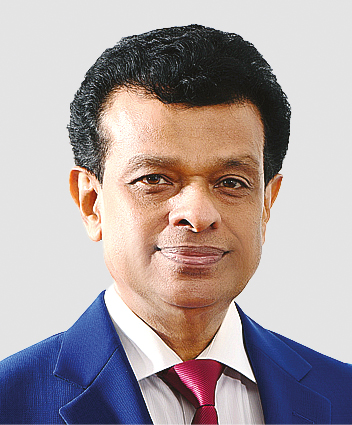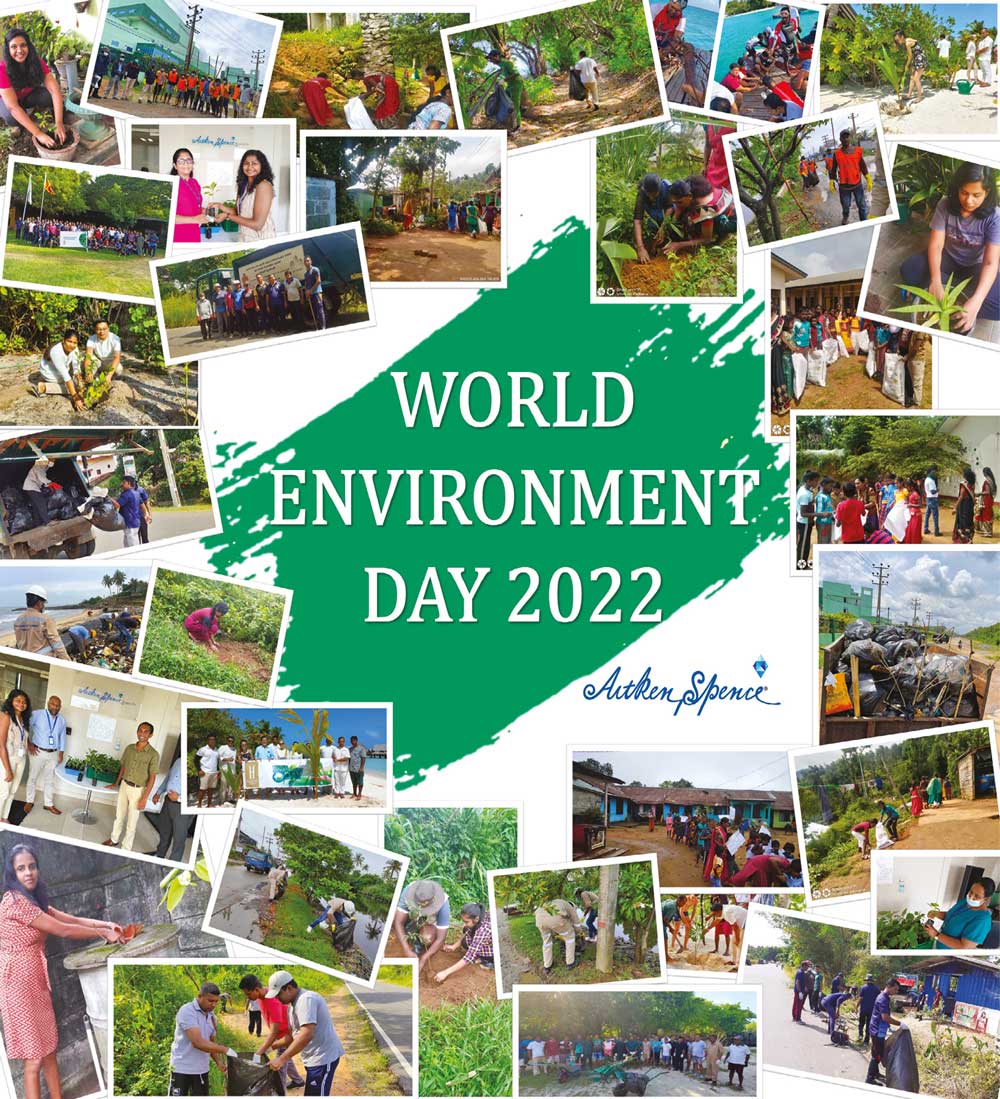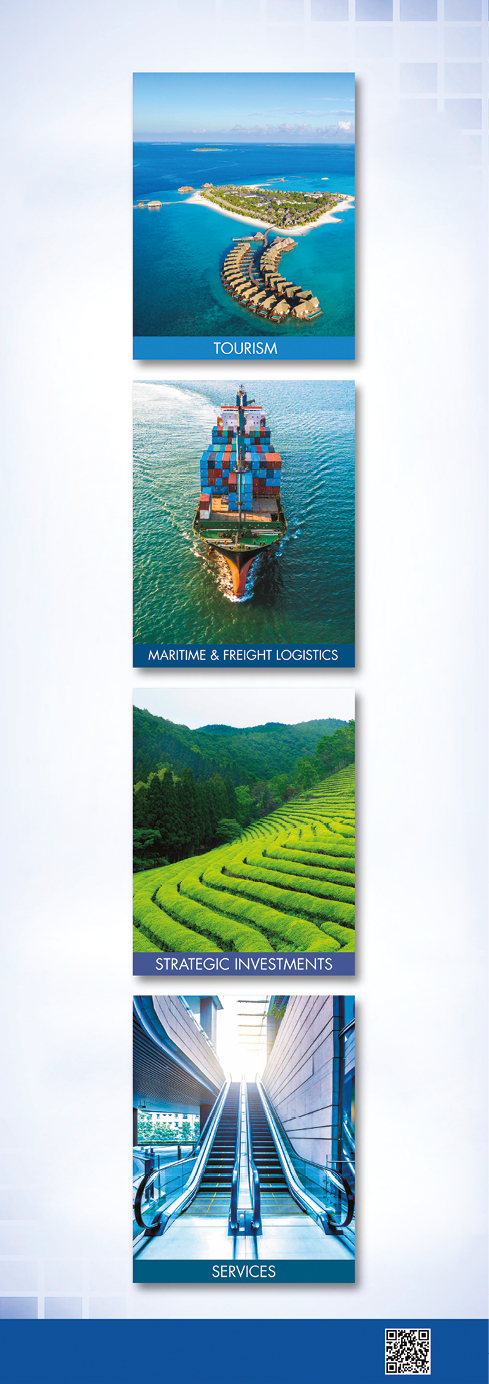AITKEN SPENCE
Q: What issues need to be addressed to protect Sri Lanka’s natural environment?
A: Protecting it is seen as a hurdle when it’s separated from the industrial ecosystem we work in. We need to stop looking at the natural environment as an afterthought and include it as an essential component of an ‘industrial ecosystem.’ It needs to be protected with the same vigour we seek social and economic prosperity.
We’re dependent on the natural environment for survival. Nature and economic development should not be viewed as an ‘either/or’ proposition. Heritance Kandalama is the best example we can cite. Solutions exist if you’re willing to look for them.

Deputy Chairman/Managing Director
Q: What does ‘corporate sustainability’ mean for your organisation?
A: Sustainability is about ensuring the ability to sustain the business by proactively identifying and managing risks. Any sustainability strategy should begin by identifying potential social, environmental and economic impacts, and work to enhance positive outcomes while controlling (if not eliminating) adverse consequences.
We depend on the environment to survive, not only for business success. Protecting it is a prerequisite for businesses to succeed, which need to be mindful of stakeholders’ needs.
Sustainable success is the outcome of businesses that achieve a sound balance of both while enjoying economic profitability. In addition to ‘People, Planet and Profit,’ we need to look at a fourth P (‘processes’) critically.
Q: How do you identify environmental impacts and risks? What policies are in place to minimise these?
A: Aitken Spence proactively adopted a scientific approach to sustainability. This is exemplified by our pillars of sustainability, namely the iconic Heritance Kandalama story. We combined the outcomes of in-house inspections, internal and external audits, and reviews with experience; and adjusted findings with feedback from stakeholders.
Our voluntary endorsements – notably, the 10 principles of the UN Global Compact; IIRC’s integrated reporting guidelines and the Global Reporting Initiative framework, as well as local and global development priorities such as the UN’s Sustainable Development Goals (SDG), and the NDCs for Sri Lanka – guide us to identify operational priorities.
Aitken Spence, a diversified company, had to develop a unique solution as our diversity does not allow us a one-size-fits-all solution. Our sustainability strategy and implementation framework give direction to the subsidiaries to plan their activities based on unique operational priorities.
Q: What recent initiatives have been taken by you to protect the natural environment?
A: In dire circumstances, Aitken Spence made a significant investment in solar energy from the major shareholder LOLC Group for Rs. 1.4 billion. Moreover, it aligns with Sri Lanka’s power and energy strategy to increase electricity generation from the renewable sector.
This investment expands our portfolio in renewable sources to enable access to clean energy, and contribute positively to rising power demands and lowering our national carbon footprint. This is the country’s first utility scale solar farm that extends over 45 acres of leased land.
In addition to solar power, our renewable portfolio includes waste-to-energy, hydropower and wind power. In 2021, Aitken Spence launched Sri Lanka’s first municipal solid waste-to-energy power plant and acquired three hydropower mini-plants. These are recent examples that reiterate our commitment to not only local but global sustainable development goals.
Telephone
2308308
info@aitkenspence.lk
Website
aitkenspence.com






